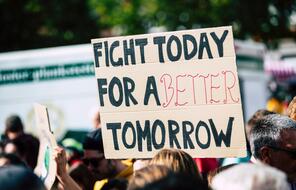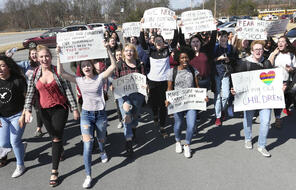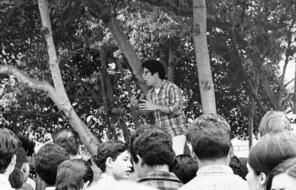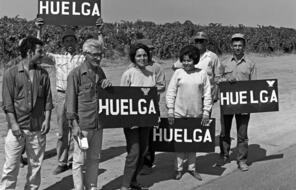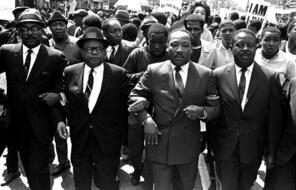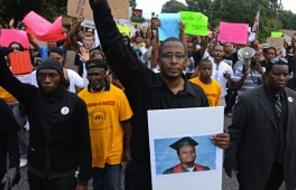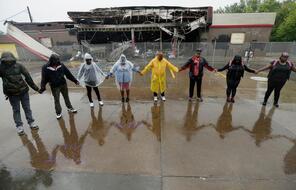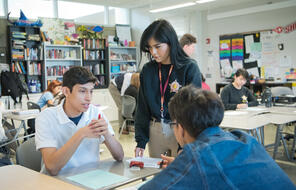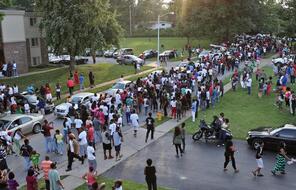The Equality Clause: Gay Rights and the Constitution
At a Glance
Language
English — USSubject
- History
- Social Studies
- Democracy & Civic Engagement
On October 10, 1990, the inaugural Gay Pride Festival was held in Johannesburg. Since its inception the festival, highlighting the rights of gays and lesbians, grows in size and magnitude.
Durban Gay Pride Parade, 2017
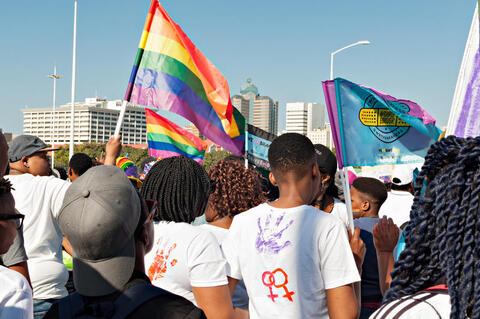
Durban Gay Pride Parade, 2017
On October 10, 1990, the inaugural Gay Pride Festival was held in Johannesburg. Since its inception the festival, highlighting the rights of gays and lesbians, grows in size and magnitude.
South Africa adopted the first constitution in the world to guarantee gay and lesbian rights. In the youth publication A Different Fight for Freedom, Marion Drew writes about what it has meant to have protections for gays and lesbians written into the constitution and some of the legislative efforts that followed to build on those rights.
How many battles do people have to fight to be free? Gay and lesbian people must have asked themselves this question many times over the last 100 and more years. . . . [G]ay and lesbian people have worked to change the laws and unfair treatment in our country. These battles were often long and lonely, because many gay people were outcasts from their communities, and did not have the support of the state or the laws made by the state. One of the things that they have done is to challenge some of the unfair laws which have made their lives more difficult.
Since 1994, when the new government came to power, gay and lesbian people have gone to the courts to make some important changes to the law about gay and lesbian people. They have worked hard. In fact, since 1994 Parliament has passed more than 30 laws that make sure that gay and lesbian people are treated fairly and are protected by the law.
Here are some of them.
A very important one was the equality clause in the Bill of Rights in our Constitution, which happened in 1996. This said that all South African people are equal in every way. . . . Then, in 1998, the court said that it was no longer a crime for men to have sex with each other. Now it is also legal for gay and lesbian people to adopt children. Another law was changed to make it legal for the partner of a gay or lesbian person from another country to come and live with their partner in South Africa. Gay or lesbian people can now get married to each other, in the same way as everybody else, and because of that they have many more rights than they did before.
These are all new changes to the laws, which have taken place since the people of South Africa finally won the battle against apartheid and all the other laws that kept people unequal. Gay and lesbian people are no longer second-class citizens! 1
Connection Questions
- What rights had to be fought for after the constitution was signed into law? Why do you think that these rights weren’t automatically given, when gay rights were already part of the constitution?
- Reflect upon your own country’s constitution and/or bill of rights. Can you identify similar gaps between rights and protections extended in the document and the enforcement of those rights? (Consider, for example, the Fourteenth Amendment to the US Constitution.)
- 1Marion Drew, A Different Fight for Freedom, ed. Shaun de Waal (Braamfontein: Gay and Lesbian Memory in Action [GALA], 2008), 30–31.
How to Cite This Reading
Facing History & Ourselves, “The Equality Clause: Gay Rights and the Constitution,” last updated July 31, 2018.
This reading contains text not authored by Facing History & Ourselves. See footnotes for source information.

